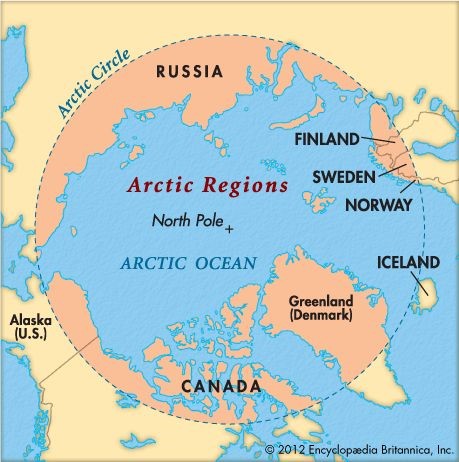7667766266
enquiry@shankarias.in
India’s first winter experience at the Arctic came to a successful end recently.
Arctic region is the region, which is above the Arctic Circle and includes the Arctic Ocean with the North Pole at its centre.
India is the only developing country aside from China to have research base in Arctic which is located at International Arctic Research base, Ny-Alesund.
|
Pillars of India's Arctic Policy |
|
